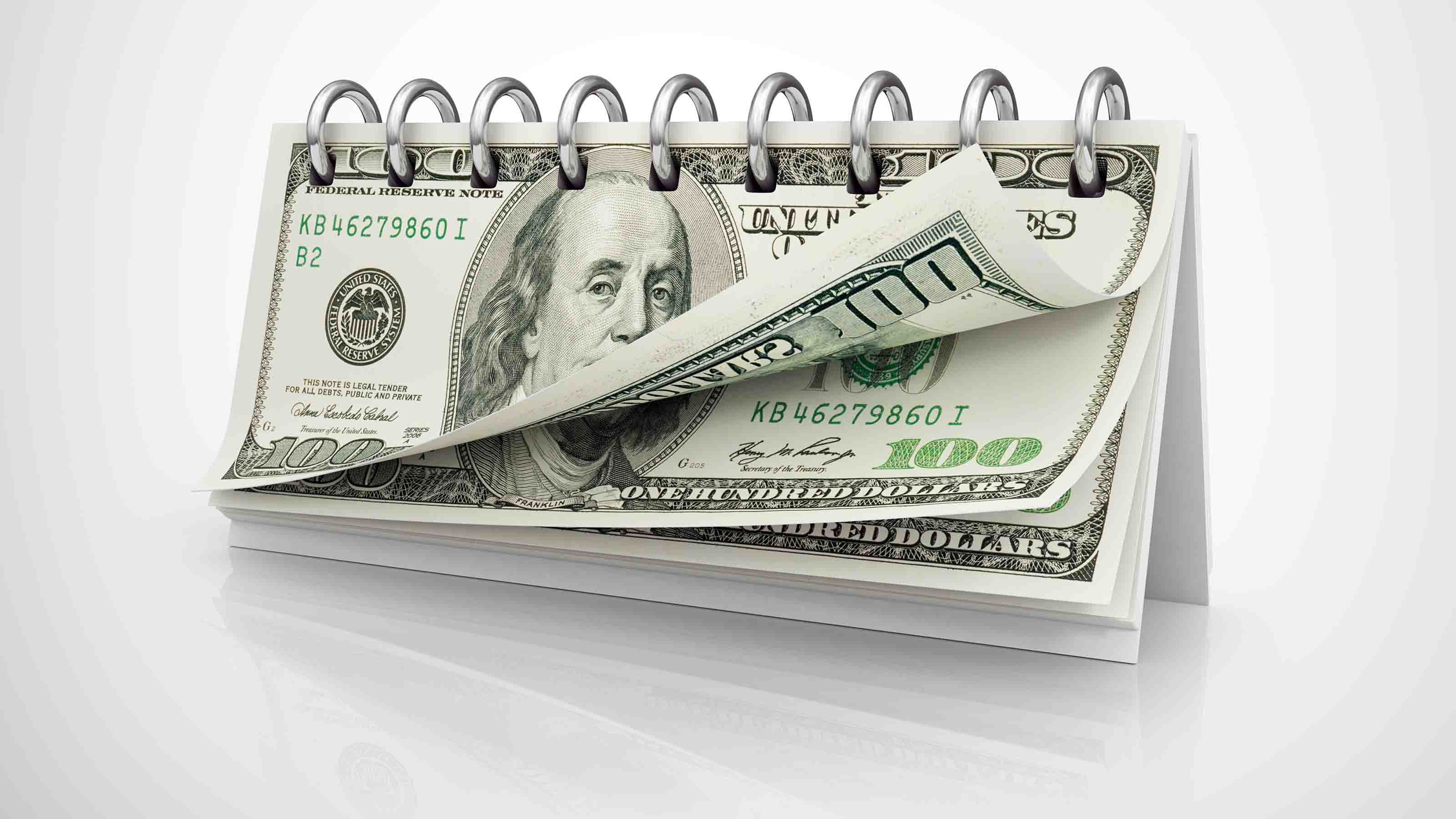The Never-Ending Hunt for Yield
The prospects are good for corporate bonds, real estate investment trusts and utilities.


Profit and prosper with the best of Kiplinger's advice on investing, taxes, retirement, personal finance and much more. Delivered daily. Enter your email in the box and click Sign Me Up.
You are now subscribed
Your newsletter sign-up was successful
Want to add more newsletters?

Delivered daily
Kiplinger Today
Profit and prosper with the best of Kiplinger's advice on investing, taxes, retirement, personal finance and much more delivered daily. Smart money moves start here.

Sent five days a week
Kiplinger A Step Ahead
Get practical help to make better financial decisions in your everyday life, from spending to savings on top deals.

Delivered daily
Kiplinger Closing Bell
Get today's biggest financial and investing headlines delivered to your inbox every day the U.S. stock market is open.

Sent twice a week
Kiplinger Adviser Intel
Financial pros across the country share best practices and fresh tactics to preserve and grow your wealth.

Delivered weekly
Kiplinger Tax Tips
Trim your federal and state tax bills with practical tax-planning and tax-cutting strategies.

Sent twice a week
Kiplinger Retirement Tips
Your twice-a-week guide to planning and enjoying a financially secure and richly rewarding retirement

Sent bimonthly.
Kiplinger Adviser Angle
Insights for advisers, wealth managers and other financial professionals.

Sent twice a week
Kiplinger Investing Weekly
Your twice-a-week roundup of promising stocks, funds, companies and industries you should consider, ones you should avoid, and why.

Sent weekly for six weeks
Kiplinger Invest for Retirement
Your step-by-step six-part series on how to invest for retirement, from devising a successful strategy to exactly which investments to choose.
Higher-yielding corners of the bond market got slammed over the summer as skittish investors flocked to safe-haven alternatives. But as rates fall on basic fixed-income investments, such as bank deposits and Treasury debt, income investors will continue their quest for extra yield.
Brace for some wide swings in the principal value of your higher-income-paying securities over the rest of 2019, as trading turns more unpredictable. But until and unless the U.S. economy tanks—note that projected growth of roughly 2% with low inflation is a sweet spot for income investors, not a letdown—you’ll get paid in full and on time with most investments.
I therefore see no reason for a massive, defensive response to Federal Reserve rate cuts, volatile oil prices or the explosive Treasury bond rally, which saw 10-year T-bond yields plunge from 2.02% to 1.71% in a single week, sparked by increasing trade tensions with China. There is no need to raise cash and stuff it into three-month CDs or safe deposit boxes because the return on cash is falling. Online banks have already decreased saving rates and will probably take rates lower still. Money market fund yields track the Fed’s rate actions, and the Fed may cut rates further.
From just $107.88 $24.99 for Kiplinger Personal Finance
Become a smarter, better informed investor. Subscribe from just $107.88 $24.99, plus get up to 4 Special Issues

Sign up for Kiplinger’s Free Newsletters
Profit and prosper with the best of expert advice on investing, taxes, retirement, personal finance and more - straight to your e-mail.
Profit and prosper with the best of expert advice - straight to your e-mail.
Thriving amid chaos. The current backdrop is good for bonds and dividends. Those who interpret the financial markets’ late-summer disarray as a prompt to trim risk will likely do it by unloading richly priced tech stocks and other shares sensitive to global trade issues and recession, including construction and farm machinery. Oil-related investments will remain uncertain; so will emerging markets. But “credit sectors look more appealing [than stocks], and the reach for yield will continue,” says Yung-Yu Ma, chief strategist for BMO Wealth Management. That bodes well for non-government-backed, yield-focused investments, such as high-grade corporate bonds, commercial mortgage pools, bank-loan and credit card receivables, and the shares of nonbank lenders.
Ma and other big-picture thinkers know that as the yield on long-term Treasuries collapsed last summer, yields on some risky sectors such as junk bonds rose (meaning prices fell)—a traditional indicator of economic uncertainty. I believe, however, that junk and some other, similar assets were already expensive, so an adjustment was overdue. I still like funds such as Northern High-Yield Fixed Income (symbol NHFIX), yielding 6.8%, and RiverPark Strategic Income (RSIVX), yielding 4.6%. They lost less than 2% of their net asset values during investors’ recent, manic flight to the full faith and credit of the U.S. Treasury. NHFIX has a return of 11.9% for the year, and RSIVX, a short-duration high-yield fund, 3.0%. (Prices and returns are through September 6.)
You may be wondering how to recapture the 0.25 percentage point and more in yield that cash and new short-term investments no longer provide. Corporate bonds rated A and BBB are sound choices. Real estate investment trusts and utilities are also fine. Their prospects for growth and higher dividends have less to do with Federal Reserve activity than with the economy, especially jobs, payrolls and consumer spending. One of my favorite high-yield ideas, the consumer-focused conglomerate Compass Diversified Holdings (CODI, $19), is typical. It started 2019 at $13, clambered up to $20 in late July, lost a buck and change during the summer swoon, and started climbing again. It yields a whopping 7.6%.
Warren Pierson, a senior bond manager for Baird Funds, says he would be surprised if interest rates completely reversed their recent fall, so your capital gains (paper profits, if you will) in bonds and bondlike investments won’t disappear. The market can certainly overreact to headlines. But the case for doing nothing or sticking with what’s working is persuasive.
Profit and prosper with the best of Kiplinger's advice on investing, taxes, retirement, personal finance and much more. Delivered daily. Enter your email in the box and click Sign Me Up.

Kosnett is the editor of Kiplinger Investing for Income and writes the "Cash in Hand" column for Kiplinger Personal Finance. He is an income-investing expert who covers bonds, real estate investment trusts, oil and gas income deals, dividend stocks and anything else that pays interest and dividends. He joined Kiplinger in 1981 after six years in newspapers, including the Baltimore Sun. He is a 1976 journalism graduate from the Medill School at Northwestern University and completed an executive program at the Carnegie-Mellon University business school in 1978.
-
 Dow Leads in Mixed Session on Amgen Earnings: Stock Market Today
Dow Leads in Mixed Session on Amgen Earnings: Stock Market TodayThe rest of Wall Street struggled as Advanced Micro Devices earnings caused a chip-stock sell-off.
-
 How to Watch the 2026 Winter Olympics Without Overpaying
How to Watch the 2026 Winter Olympics Without OverpayingHere’s how to stream the 2026 Winter Olympics live, including low-cost viewing options, Peacock access and ways to catch your favorite athletes and events from anywhere.
-
 Here’s How to Stream the Super Bowl for Less
Here’s How to Stream the Super Bowl for LessWe'll show you the least expensive ways to stream football's biggest event.
-
 The Most Tax-Friendly States for Investing in 2025 (Hint: There Are Two)
The Most Tax-Friendly States for Investing in 2025 (Hint: There Are Two)State Taxes Living in one of these places could lower your 2025 investment taxes — especially if you invest in real estate.
-
 The Final Countdown for Retirees with Investment Income
The Final Countdown for Retirees with Investment IncomeRetirement Tax Don’t assume Social Security withholding is enough. Some retirement income may require a quarterly estimated tax payment by the September 15 deadline.
-
 Why Investors Needn't Worry About U.S. Credit Downgrade
Why Investors Needn't Worry About U.S. Credit DowngradeFitch Ratings The United States saw its credit rating downgraded for just the second time in history, but experts aren't worried about the long-term damage to stocks.
-
 Income-Investing Picks for a Recession
Income-Investing Picks for a RecessionInvesting for Income Some consequences of an economic downturn work to the benefit of fixed-income investors. Here are three fund ideas that fit the bill.
-
 Dogs of the Dow Are 2022's Best in Show
Dogs of the Dow Are 2022's Best in Showdividend stocks Some of the best investments for income investors in a volatile 2022 have come from the Dogs of the Dow.
-
 Bond Values in a Volatile Market
Bond Values in a Volatile MarketInvesting for Income While the market's instability may not be over just yet, the latter half of the year should be less daunting – and possibly more rewarding – for investors.
-
 Should You Buy Bonds Now? What To Consider
Should You Buy Bonds Now? What To Considerbonds The fixed-income market has been turned on its head in recent years, but there are still opportunities for those looking to buy bonds again.
-
 Dividend Dates: A Beginner's Guide
Dividend Dates: A Beginner's Guidedividend stocks Everything you need to know about ex-dividend dates, dividend announcements and other parts of the dividend calendar.